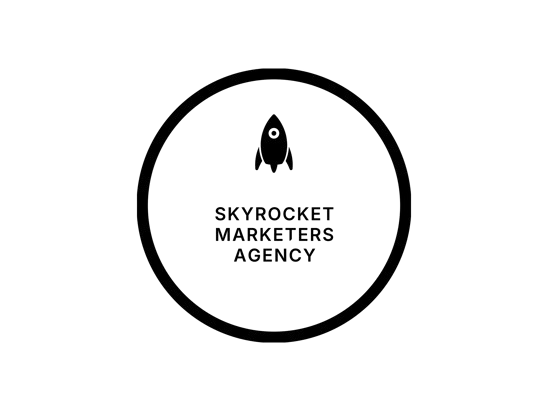The Importance of Continuous Monitoring & Reporting For SEO Success in Cyprus
SEO
9/19/20255 min read


SEO success requires consistent monitoring and detailed performance reporting today. Lack of assessment will make businesses lose their visibility in competitive markets. Surveillance enforces alignment between strategies and consumer behaviors and expectations. Reporting identifies the improvement, issues, and prospects of further SEO development.
Algorithms that determine the ranking of websites are constantly being updated by search engines. Companies need to monitor outcomes to change fast. Ongoing surveillance provides valuable information that can underpin sustainable digital development. Reports express value and are effective in relating the effectiveness of SEO actions taken. Organizations that are not reporting have a hard time proving their impact on decision-making processes. Hence, long-term success in SEO will still require monitoring and reporting.
Why Monitoring Matters in SEO Campaigns
SEO campaigns need to be monitored so that websites are not lost in search results. Ranking of keywords will indicate whether the optimization processes are effective in the long run. Traffic patterns show the response of the audience to the published content online. Monitoring of backlinks maintains the authority that is powerful and reliable at the industrial level.
Competitor analysis identifies threats and opportunities in the local digital environments. In the absence of monitoring, businesses are unable to realize important growth and improvement opportunities. Monitoring would expose technical problems such as slow speed or crawling problems. Portable performance tracking is viewable by those who have portable phones. Monitoring content performance: This helps to find out what subjects are most appealing to audiences. Therefore, constant tracking allows SEO campaigns to be optimized to maintain a good performance.
The Role of Reporting in SEO Success
Reporting transforms collected data into insights guiding business decision-making. Clear reports demonstrate SEO value to managers, clients, and stakeholders. Progress reports showcase improvements in traffic, rankings, and conversions. Reporting highlights underperforming areas needing immediate optimization and focus.
Detailed reports enhance confidence between the SEO teams and the business leadership. In the absence of reports, the stakeholders will be unable to determine the effectiveness of implemented strategies. Reporting is a way of transparency, which creates credibility in competitive digital marketplaces. Regular reporting supports accountability across all involved SEO professionals. Reports also inspire confidence in continued investments for SEO. By doing this, the reporting process will increase the life of the partnership between the SEO teams and the stakeholders.
Key Metrics to Monitor for SEO Success
Reporting is the process involved in converting the received data into information, which can be utilized in the making of business decisions. Clearly, reports illustrate the value of SEO to managers, clients, and stakeholders. The progress reports are a demonstration of better traffic, rankings, and conversions. Reporting also emphasizes areas that are performing poorly and require urgent optimization and attention. Fully detailed reports build confidence between SEO departments and corporate management.
In the absence of reports, stakeholders will be unable to determine whether strategies implemented have been effective. Transparency brought by reports creates credibility in competitive digital marketplaces. The frequent reporting is helpful in terms of accountability among all participating SEO professionals. Reports also give confidence to invest more in SEO. Thus, reporting provides certainty, confidence, and dedication to SEO. Tools that help to monitor SEO continuously and report.
Google Analytics Gives Details of Traffic on Different Channels


Google Search Console tracks performance, errors, and search visibility data. Semrush supports competitor analysis, keyword research, and backlink tracking. Ahrens delivers strong backlink insights and authority measurement capabilities. Screaming Frog identifies technical issues across websites requiring optimization.
Moz offers ranking data and valuable optimization recommendations for websites. Data Studio transforms raw numbers into professional, customized visual reports. Hojer reveals user behavior through heatmaps and recorded session interactions. BrightLocal supports monitoring local SEO campaigns within specific geographical locations. These tools collectively enable strong monitoring and reporting capabilities.
Benefits of Continuous Monitoring for Businesses in Cyprus
Cyprus businesses compete with both local and international online players. Monitoring ensures local companies remain competitive within globalized digital markets. Tourism industries benefit greatly from continuously tracking SEO performance metrics. Hotels, restaurants, and attractions require visibility for international tourist audiences. Monitoring reveals seasonal fluctuations affecting travel-related business search visibility.
Local service providers benefit from adapting strategies through regular monitoring. Monitoring based on data would assist in improving the targeting of Cypriot consumer behaviors. Unlimited insights are used to make investments, eliminating the waste of resources on ineffective strategies. Trust between the digital marketing partners and the business is also enhanced through monitoring. Thus, continuous monitoring secures growth for Cypriot businesses long-term.
Challenges Without Continuous Monitoring and Reporting
Businesses ignoring monitoring cannot detect sudden ranking position declines. Missed opportunities arise when competitors implement better optimization strategies. Technical errors remain unnoticed, harming visibility and customer engagement online. Lack of reporting prevents stakeholders from understanding campaign effectiveness. Without accountability, SEO teams struggle to prove value to leadership.
Decisions become guesswork, lacking guidance from accurate performance data. Missed consumer trends reduce opportunities for improved content targeting strategies. Negative user experiences remain unresolved without monitoring usability insights. Revenue decreases when search visibility falls unnoticed for extended periods. Therefore, neglecting monitoring and reporting risks business survival significantly.
How Reporting Strengthens Stakeholder Relationships
Reports build trust through transparent communication about SEO campaign results. Stakeholders value evidence of growth and performance improvements achieved. Clear reports explain technical details in simple, understandable terms. Visual dashboards allow non-technical business managers access to data. Updates are made regularly so that the stakeholders are not in doubt about the current strategies.
Reporting provides accountability, encouraging alignment between businesses and agencies. Clients appreciate measurable proof showing return on marketing investments. Strong communication reduces conflicts and misunderstandings regarding campaign progress. Reports highlight future opportunities, inspiring confidence in upcoming strategies. In such a way, reporting enhances the long-term partnership between SEO teams and the stakeholders.
Ongoing Checks of Long-term SEO Development
SEO success depends on consistent improvement across changing algorithms. Monitoring ensures businesses stay aligned with evolving search engine requirements. Data-driven strategies adapt quickly, maintaining rankings despite market shifts. Competitor monitoring ensures businesses respond effectively against aggressive competitors. Consumer behaviors change frequently, requiring adaptive SEO-driven adjustments.
Regular monitoring supports agility within fast-changing digital marketing environments. Businesses maintain monitoring and secure resilience against unexpected performance drops. Insights gained ensure campaigns remain effective throughout extended timeframes. Continuous improvement creates sustainability within Cyprus's competitive business landscape. In this way, reporting enhances long-term partnership among the SEO teams and the stakeholders.
Building a Culture of SEO Accountability Through Reporting


Reporting instills accountability across organizations practicing digital marketing strategies. Teams recognize responsibility for performance outcomes across SEO initiatives. Reports document progress, helping businesses track historical performance improvements. Management uses reports for planning future investments and campaigns.
Transparency builds confidence across leadership and operational SEO teams. Reporting culture encourages consistent alignment with organizational growth goals. Performance reviews based on reports strengthen strategic decision-making processes. Reports also motivate teams to achieve measurable performance improvements consistently. A culture of accountability ensures businesses remain competitive within markets. Therefore, reporting drives organizational discipline, supporting sustainable SEO strategies.
Conclusion
Continuous monitoring and reporting remain essential for SEO success today. They provide insights, accountability, and proof of long-term growth. Monitoring reveals problems early enough, and businesses are able to take instant action. They do this together, and trust is established, and organizational decision-making processes are strengthened.
Cyprus businesses especially benefit within competitive international tourism-driven environments. Ignoring these practices risks invisibility and wasted digital marketing investments. Strong monitoring secures resilience, while reporting secures confidence and accountability. Both practices guarantee sustainable growth within constantly changing digital landscapes. Ultimately, monitoring and reporting define success for modern SEO strategies.
Contact
info@skyrocketmarketers.com
+357 96166570
2026 Skyrocket Marketers © All Rights Reserved.
Limassol Office
Victory House, Arch. Makarios III Avenue 205, Limassol, 3030
Nicosia Office
Digenis Ave 81-83 Grivas 1st, 5th Floors, Nicosia, 1090
Useful Links
Top Digital Marketing Agencies For Financial Services
Everneed AI Receives AI Software Recognition
GURU OF THE DAY: Web Design Award
King Of The Day: Web Design Award
Cyprus Digital Marketing Summit 2026
Cyprus Videographer/Photographer


NEWSLETTER
EVERNEED AI LTD


